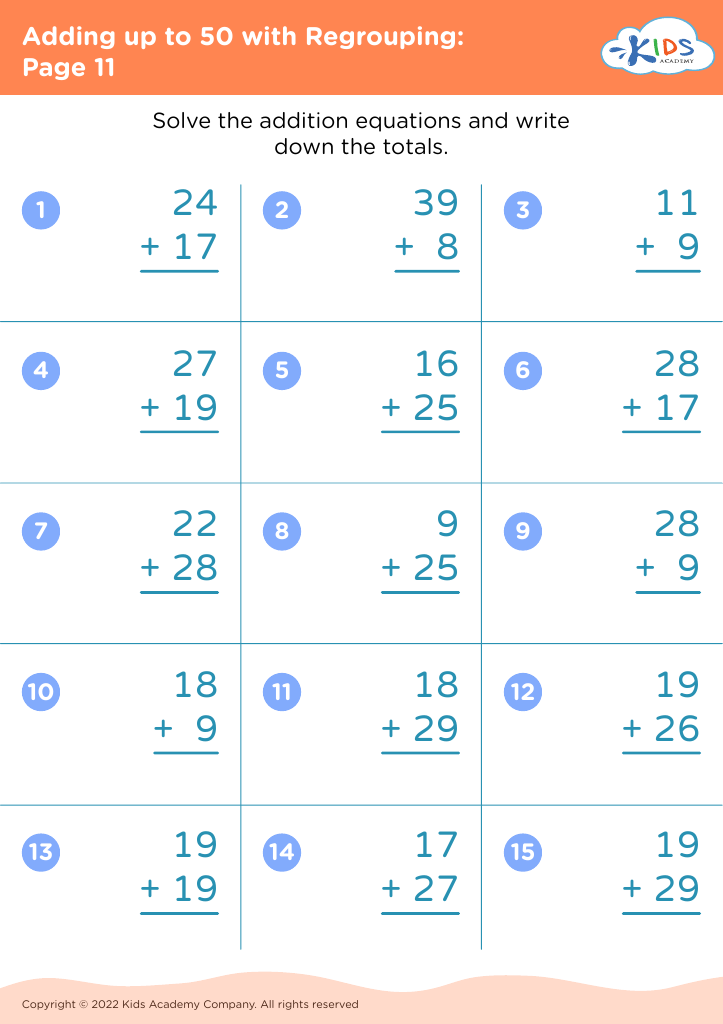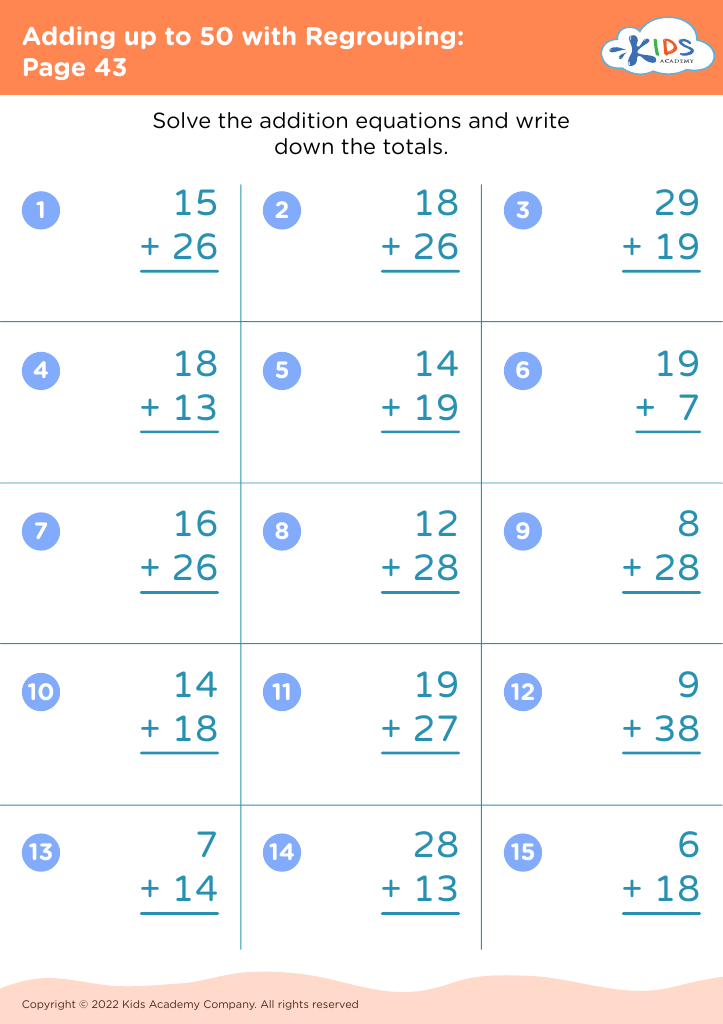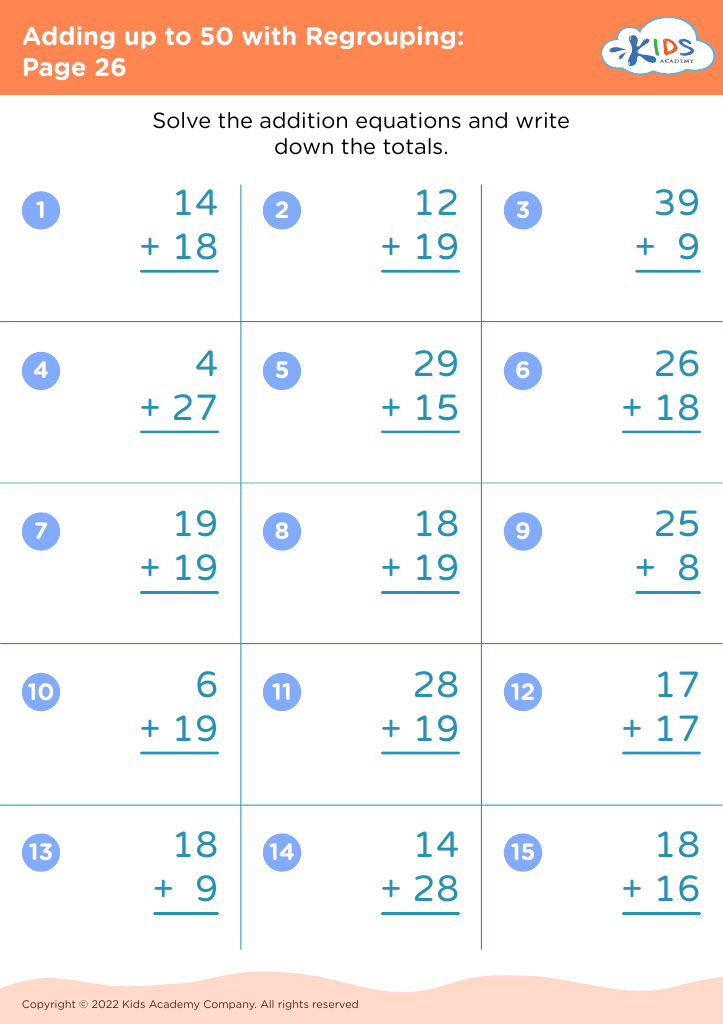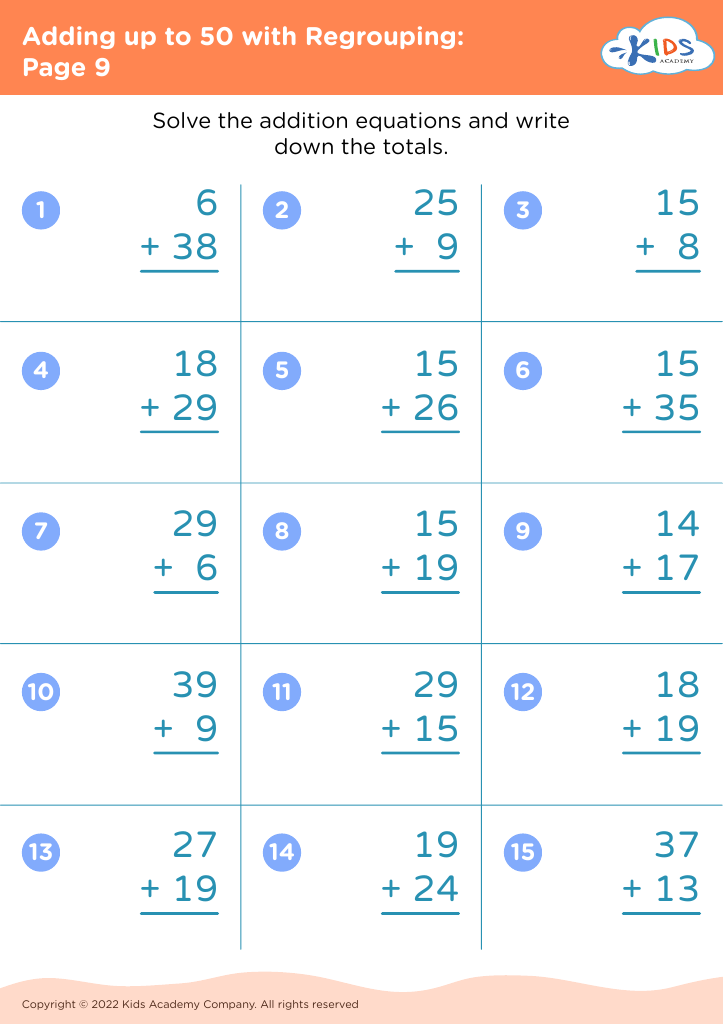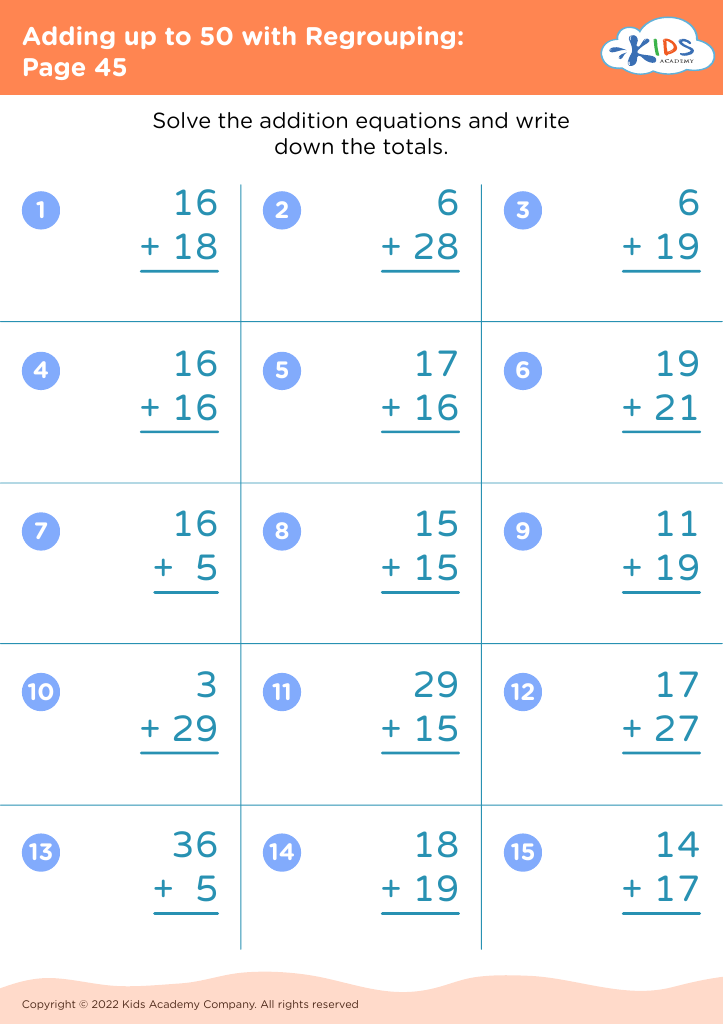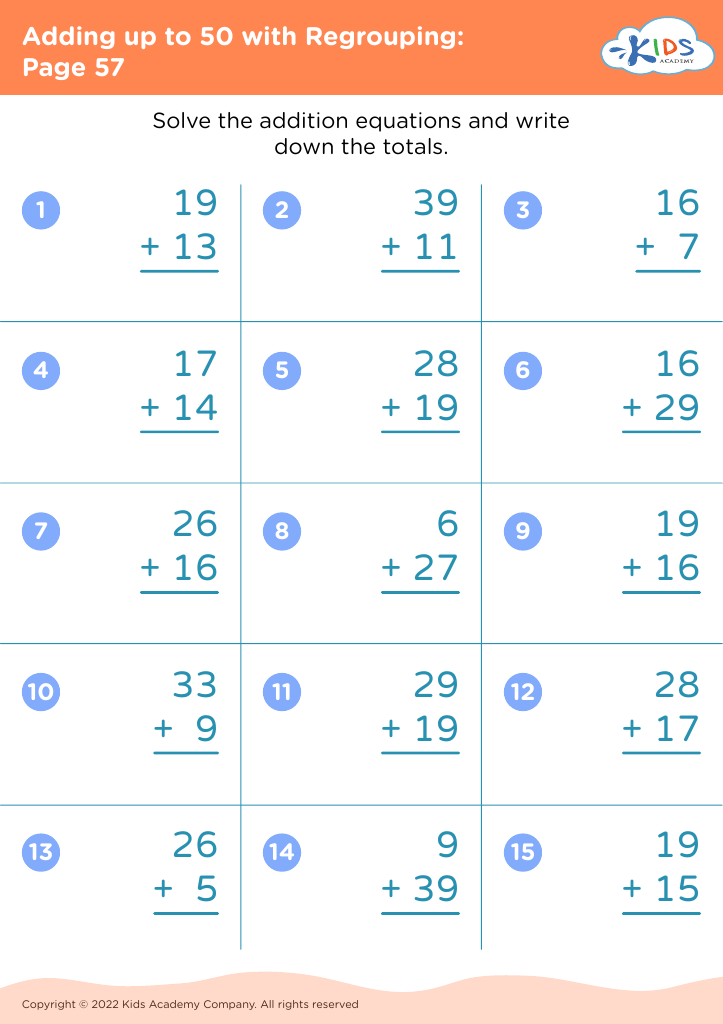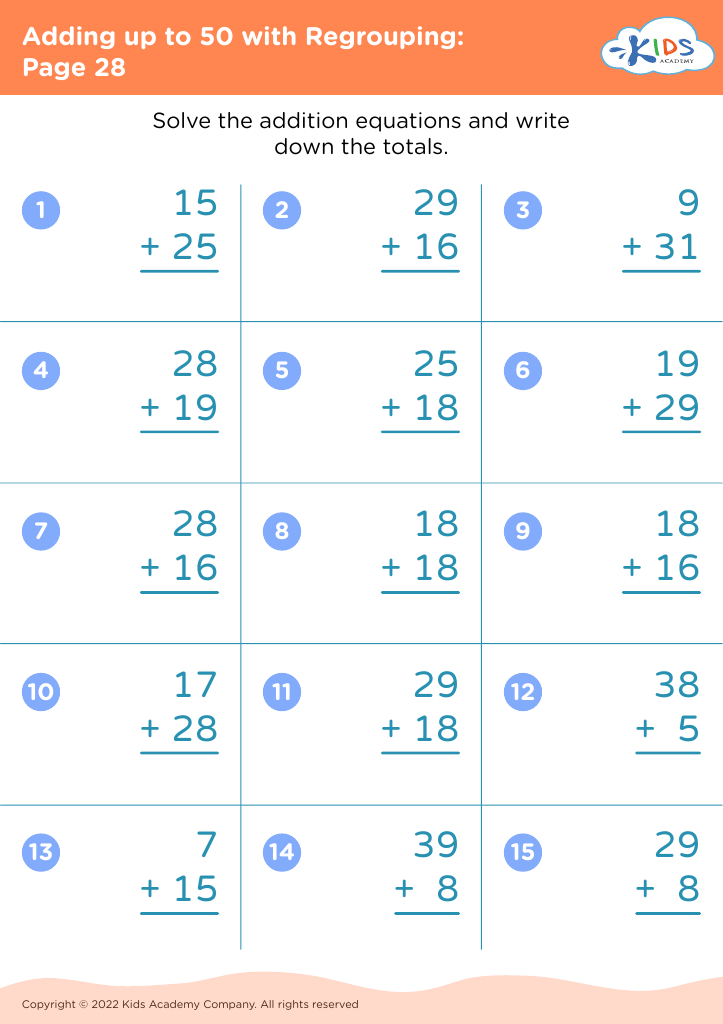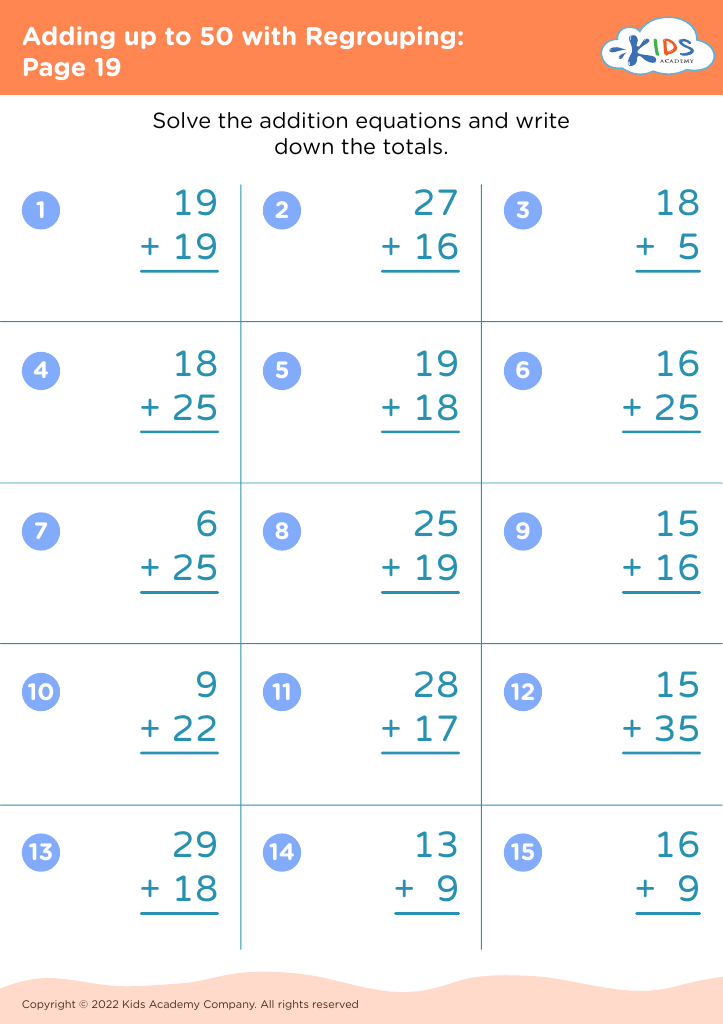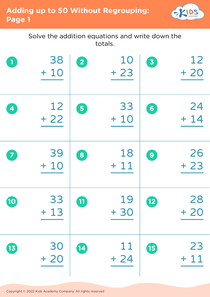Number Recognition Adding up to 50 with Regrouping Worksheets for Ages 4-8
14 filtered results
-
From - To
Enhance your child's math skills with our Number Recognition Adding Up to 50 with Regrouping Worksheets, specially designed for ages 4-8. These engaging worksheets help young learners master essential concepts, such as understanding numbers and addition through practical regrouping techniques. Fun and interactive, the activities encourage number recognition and reinforce fundamental arithmetic skills. Children will enjoy hands-on practice that enhances their confidence and problem-solving abilities. Perfect for parents and educators looking to support early math learning, our worksheets align with educational standards while making the learning experience enjoyable. Begin your child's journey to math proficiency today!
Number recognition and the ability to add numbers up to 50 with regrouping are foundational skills in early mathematics for children aged 4-8. Understanding number recognition helps children identify quantities, fosters counting skills, and lays the groundwork for more complex math concepts. As they recognize numbers, children become more confident in their mathematical abilities, which is crucial for their overall learning journey.
Adding up to 50 with regrouping introduces students to concepts of place value and carrying over numbers, essential skills for arithmetic. These skills not only enhance computational fluency but also encourage critical thinking and problem-solving. Regrouping requires students to understand that numbers can be broken down and rearranged, promoting flexible thinking in mathematics.
Furthermore, mastering these skills equips children with the tools they need for everyday situations, such as managing money or measuring ingredients for recipes. Parents and teachers should prioritize these skills to build a strong mathematical foundation, ensuring that children are prepared for future challenges in school and in life. Nurturing these abilities at an early age can instill a love for math, leading to more success in their academic pursuits and enhancing their self-esteem in their capabilities as learners.


